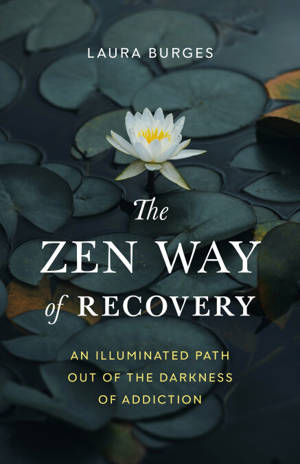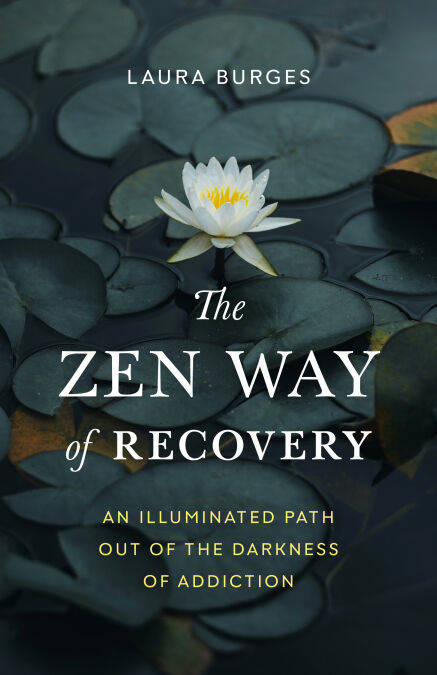
- Retrait gratuit dans votre magasin Club
- 7.000.000 titres dans notre catalogue
- Payer en toute sécurité
- Toujours un magasin près de chez vous
- Retrait gratuit dans votre magasin Club
- 7.000.0000 titres dans notre catalogue
- Payer en toute sécurité
- Toujours un magasin près de chez vous
The Zen Way of Recovery EBOOK
An Illuminated Path Out of the Darkness of Addiction
Laura Burges
Ebook | Anglais
21,63 €
+ 21 points
Description
An accessible, compassionate guide to Buddhist principles and practices that can help support recovery from addictions and addictive behaviors—written by an experienced lay teacher with long-term recovery.
For anyone struggling with addiction, Buddhism offers powerful, grounding wisdom and tools to help support recovery. In The Zen Way of Recovery, Laura Burges shares her experience as a dedicated Zen practitioner who came to terms with her own addiction to alcohol and found support for her recovery. Through the lens of Buddhist teachings, Burges offers tools and practices which, together with the help of recovery programs, can offer a road to sobriety.
Burges is an experienced and compassionate guide, and her message is resonant for people with any type of addictive behavior—and for people who aren’t necessarily familiar with Buddhism. Her teachings are drawn from the Buddha's life and teachings (specifically the Eight Awarenesses of the Awakened Being and the Six Paramitas), and the wisdom of Japanese Buddhist priest Dogen Zenji, the founder of the Soto school of Zen, among others.
Burges emphasizes the importance of being in an active recovery program, and the teachings and practices she offers in each chapter—including reflections, journaling prompts, meditations, instructions for setting up and altar and zazen—are both a perfect adjunct and powerful reinforcement.
Examples of reflections and journaling prompts include:
Do you still hear the critical, contemptuous, sarcastic voice of a parent or partner in your own head? Do you sometimes hear yourself mirroring this negative voice with others? What were the models of relationship that you grew up with? What are ways that you can cultivate more patience? Check in with yourself to see if tiredness, hunger, loneliness, or anger is affecting your thinking in the moment.
For anyone struggling with addiction, Buddhism offers powerful, grounding wisdom and tools to help support recovery. In The Zen Way of Recovery, Laura Burges shares her experience as a dedicated Zen practitioner who came to terms with her own addiction to alcohol and found support for her recovery. Through the lens of Buddhist teachings, Burges offers tools and practices which, together with the help of recovery programs, can offer a road to sobriety.
Burges is an experienced and compassionate guide, and her message is resonant for people with any type of addictive behavior—and for people who aren’t necessarily familiar with Buddhism. Her teachings are drawn from the Buddha's life and teachings (specifically the Eight Awarenesses of the Awakened Being and the Six Paramitas), and the wisdom of Japanese Buddhist priest Dogen Zenji, the founder of the Soto school of Zen, among others.
Burges emphasizes the importance of being in an active recovery program, and the teachings and practices she offers in each chapter—including reflections, journaling prompts, meditations, instructions for setting up and altar and zazen—are both a perfect adjunct and powerful reinforcement.
Examples of reflections and journaling prompts include:
Do you still hear the critical, contemptuous, sarcastic voice of a parent or partner in your own head? Do you sometimes hear yourself mirroring this negative voice with others? What were the models of relationship that you grew up with? What are ways that you can cultivate more patience? Check in with yourself to see if tiredness, hunger, loneliness, or anger is affecting your thinking in the moment.
Spécifications
Parties prenantes
- Auteur(s) :
- Editeur:
Contenu
- Nombre de pages :
- 224
- Langue:
- Anglais
Caractéristiques
- EAN:
- 9780834845176
- Date de parution :
- 17-07-23
- Format:
- Ebook
- Protection digitale:
- Adobe DRM
- Format numérique:
- ePub

Les avis
Nous publions uniquement les avis qui respectent les conditions requises. Consultez nos conditions pour les avis.






